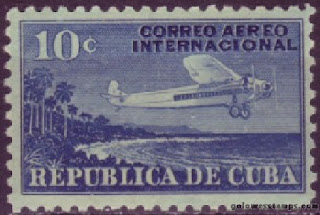After 50 long years, direct mail between Cuba and the United States is returning. As a stamp collector I like this. For Cubans it is a brand new day, as it makes communications with friends and relatives a whole lot easier, as they no longer have to go through third-party countries. Still, there are restrictions.
No doubt, our GOP candidates will jump on this latest bit of warming. However, it may be too late for any of them to turn back relations, assuming a GOP candidate were to win the White House in 2016. The path to normalization between the countries is moving so rapidly that Discovery even has a show, entitled Cuban Chrome, that has become a popular favorite. Who knows, even the Castros may be gone by 2017, rendering all the Republicans' bellicose words on the campaign trail moot.
Of course, Marco Rubio believes he represents Cuban exiles in residence. He wasn't even born in Cuba, but loves to tell the story of his father, ignoring the awful injustices committed by the previous Batista regime that led to the Cuban revolution in 1959. It's kind of like all those Republicans who think Iranians had it so good under the Shah.
I'm not saying that the Castro regime hasn't been without its share of injustices, but he probably wouldn't have lasted so long had not the United States chosen to make him public enemy number one. Fidel's brother, Raul, has been a kinder, gentler dictator, and certainly much easier to communicate with. Had there not been this transition in government, it is doubtful we would have seen this thaw take place, as Fidel had been able to artfully take advantage of US animosity to maintain his popular appeal. Raul seems much more pragmatic.
Anyway, we can now enjoy a new era in Cuban-American relations. It would be nice to see the two postal services come out with a joint commemorative stamp in the coming year.

Wouldn't this be something,
ReplyDeletehttps://www.yahoo.com/politics/obama-really-wants-to-go-to-cuba-but-only-if-the-101913219.html